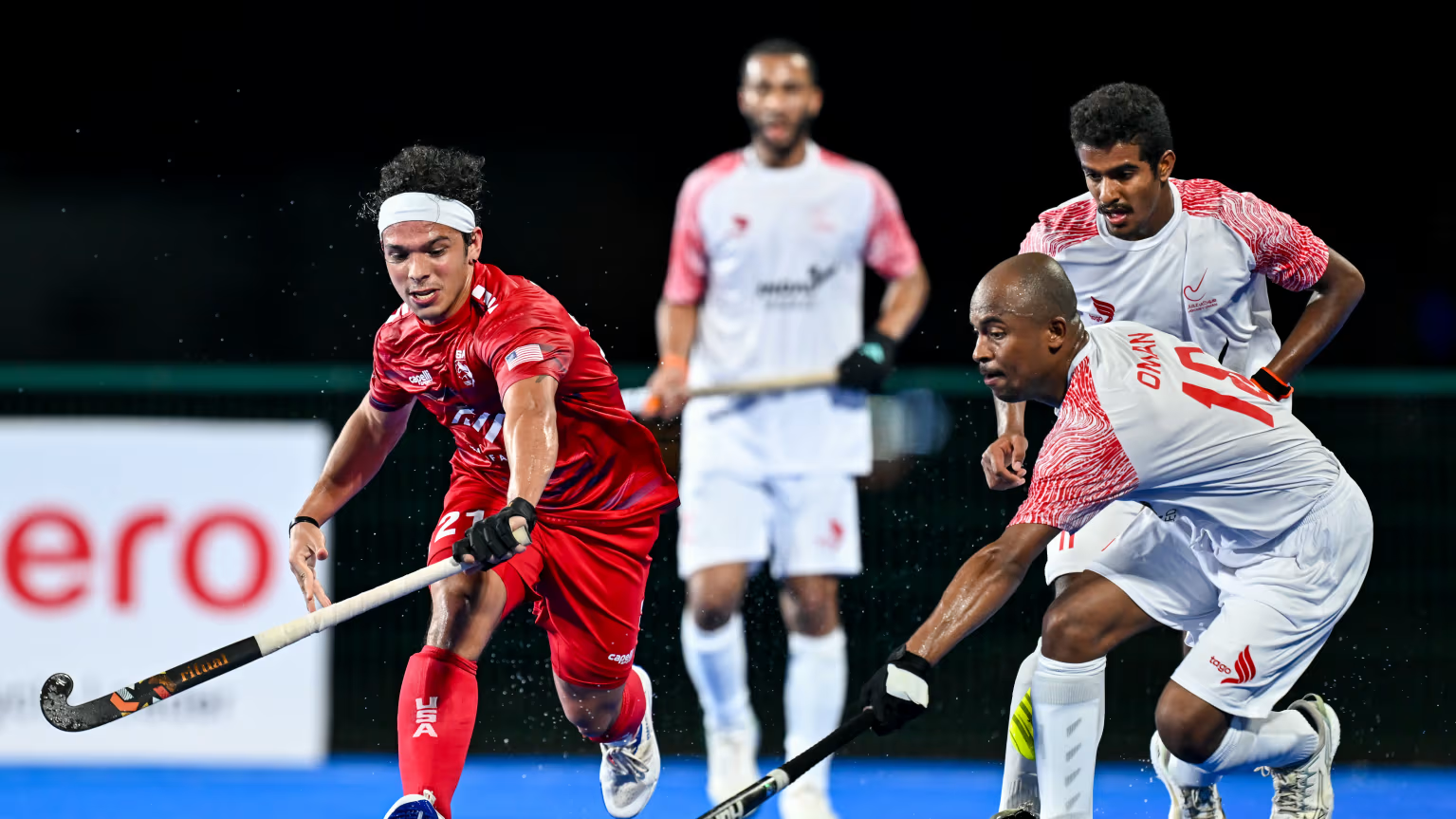The International Hockey Federation (FIH) has confirmed that Oman will replace Pakistan in the upcoming FIH Men’s Junior World Cup 2025, scheduled to be held in Chennai and Madurai, Tamil Nadu, from November 28 to December 10, 2025.
The decision follows Pakistan’s official withdrawal from the tournament, citing “security concerns” over traveling to India. While the withdrawal marks yet another episode of geopolitical tension spilling into sport, the FIH’s swift response activating its qualification cascade mechanism ensured that the integrity of the tournament structure remained intact.
The 2025 edition of the Junior World Cup holds special significance as both the men’s and women’s tournaments expand to 24 teams for the first time. This expansion forms part of the FIH’s broader “Empowerment and Engagement Strategy”, aimed at improving accessibility and encouraging greater youth participation worldwide. For India, this will be the fourth time hosting the Men’s Junior World Cup, underlining its position as a global hub for hockey. However, the event now finds itself at the intersection of politics and sport following Pakistan’s sudden exit.
Pakistan had earned its place as the runner-up at the 2024 Men’s Junior Asia Cup in Muscat, Oman a legitimate qualification earned on the field. However, the Pakistan Hockey Federation (PHF) announced on October 22, 2025, that the team would not participate in the Tamil Nadu event. Citing “serious security concerns,” the PHF declared that sending players to India was “too risky.” Despite the FIH’s extended deadlines to allow the PHF more time for government clearance, no approval came from Islamabad.
This marks the second time in two years that Pakistan has withdrawn from a multi-nation hockey event in India the previous instance being the Asia Cup 2024 in Rajgir, where Bangladesh had replaced them. The pattern now suggests a near-complete sporting freeze between the two nations, extending beyond cricket to hockey, where India and Pakistan historically share one of the sport’s most iconic rivalries.
The PHF’s statement referenced not only safety concerns but also a broader political environment. The federation cited “negative atmospherics” in bilateral relations and even pointed to “symbolic acts of hostility” during previous sporting encounters. Officials highlighted the aftermath of the April 2025 Pahalgam terror attack and subsequent military escalation as contributing factors. They also referenced instances such as “the Indian cricket team captain’s refusal to shake hands with his Pakistani counterpart” during the Asia Cup as emblematic of deteriorating sportsmanship.
By combining security and symbolic grievances, Pakistan effectively formalized a political boycott of India in sports competitions, even those conducted under multilateral banners designed to promote diplomacy through sport.
Oman’s Inclusion: Regulatory and Symbolic Significance
Following Pakistan’s formal withdrawal, the FIH moved swiftly to implement its “next highest placed team” rule, selecting Oman as the replacement. Oman had finished ninth in the 2024 Junior Asia Cup, where India were champions and Pakistan runners-up.

The decision adhered strictly to FIH regulations, ensuring the Asian Hockey Federation’s quota was maintained. Though Oman’s ranking in the qualifier was significantly lower than Pakistan’s, their inclusion reflects both the practical necessity of maintaining the 24-team structure and the FIH’s strategic goal of broadening the sport’s global reach.
For Oman, this marks a historic first appearance at the Men’s Junior World Cup. The Chairman of the Oman Hockey Association, Dr. Marwan bin Juma al Juma, called the opportunity “a golden chance for our next generation to gain global experience,” describing it as a milestone for the country’s sporting development. Pakistan’s withdrawal also reshaped the tournament’s Group B, which initially featured India, Pakistan, Chile, and Switzerland. With Oman taking Pakistan’s place, the revised group now includes India, Oman, Chile, and Switzerland.
While the substitution preserves the tournament’s structure, it undeniably weakens Group B’s competitiveness. The traditional India-Pakistan clash historically one of the most anticipated fixtures in world hockey is now absent, depriving the event of a marquee encounter that would have attracted massive crowds and media attention.
Oman, though a developing side, is unlikely to replicate Pakistan’s competitive challenge. As a result, India’s path to the knockout rounds appears smoother, though the loss of the sport’s most iconic rivalry is a major commercial and emotional setback.
Pakistan’s decision underscores the growing difficulty of hosting multinational events in regions affected by political friction. While India’s policy permits participation in multi-nation tournaments involving Pakistan, the latter’s government-level intervention demonstrates how geopolitical disputes can override sporting autonomy. The FIH now faces a complex governance challenge: how to ensure participation stability in politically sensitive regions. Experts suggest introducing mandatory sovereign participation guarantees or even exploring neutral-venue options for fixtures involving high-risk nations.
Despite the political setback, the FIH’s expanded 24-team format proved resilient. The ability to seamlessly replace a top Asian side with a lower-ranked developing team like Oman demonstrates the system’s flexibility turning a geopolitical withdrawal into an opportunity for inclusion and development.
Oman’s late entry into the FIH Men’s Junior World Cup 2025 is both a product of crisis and a symbol of progress. The FIH’s firm regulatory application ensured the tournament’s continuity and integrity, even as geopolitics disrupted competition. While Pakistan’s absence removes a historic rivalry, the inclusion of Oman fulfills a different vision one that prioritizes the growth of global hockey and provides emerging nations a platform to evolve. The challenge for world hockey now lies in ensuring that political borders do not continue to redraw the boundaries of sport.
How useful was this post?
Click on a star to rate it!
Average rating 0 / 5. Vote count: 0
No votes so far! Be the first to rate this post.





